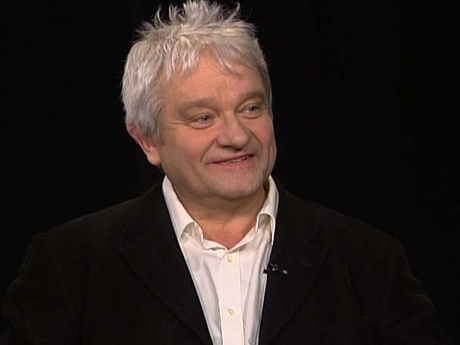Nurse on Creativity
By Peter LloydOver the course of an hour-long interview, Nobel Laureate Paul Nurse covered the nature of creativity and science, his personal creative motivation, managing creative people, as well as his unique definitions of life and DNA, the trouble with the global warming debate, and a surprisingly ironic discovery about his own origins. Plus much more.
Since I can’t interview all the creative giants I’d like to meet, I let Charlie Rose do most of that for me. He does such a darned good job. His hour with Paul Nurse took place as Paul was in the process of moving from Rockefeller University to lead the UK Centre for Medical Research and Innovation. (A snappier name is forthcoming.) I recommend viewing the entire Sir Paul Nurse interview.
 Meanwhile, let me summarize Paul’s thoughts on managing creative people. Keeping in mind that even though Nurse has earned fame for his Nobel-quality work, he humbly explains that he simply studies the shape and division of cells. "I’m a yeast biologist,” he modestly declares late in the discussion.
Meanwhile, let me summarize Paul’s thoughts on managing creative people. Keeping in mind that even though Nurse has earned fame for his Nobel-quality work, he humbly explains that he simply studies the shape and division of cells. "I’m a yeast biologist,” he modestly declares late in the discussion.Motivated by the pure curiosity to study what interests him, Paul has learned along the way to manage giant creative minds only because he often has been asked to do so. He takes the reins out of a sense of guilt. It’s his payback for being allowed to follow what interests him and to satisfy his own curiosity. In this frame of mind he has learned that managing creative people is not about power.
I shouldn’t be exerting power over them, I should be liberating them, so they can actually generate all their creativity and do everything they want to do. So by being in charge and not exercising power, I actually empower my colleagues.In his management roles he says he operates like the United Nations. That is, he engages individuals from a range of backgrounds and helps them find ways to solve conflicts and to make sure they all feel like they have a piece of the action.
Near the conclusion of their exchanges about the need to support the humanities as well as science, Charlie focused on their similarities of the disciplines. They both employ the scientific process. Both involve a series of decisions, build on trial and error, and thrive on self-criticism.
From there Paul offered, “Creativity depends on two things. It depends on really precise logic but also seeing a big picture.” To conclude, Paul and Charlie agreed, you have to have both to create great art or great science, always driven by curiosity.
http://www.youtube.com/v/YrWJ7O4FKUI&hl=en_US&feature=player_embedded&version=3
